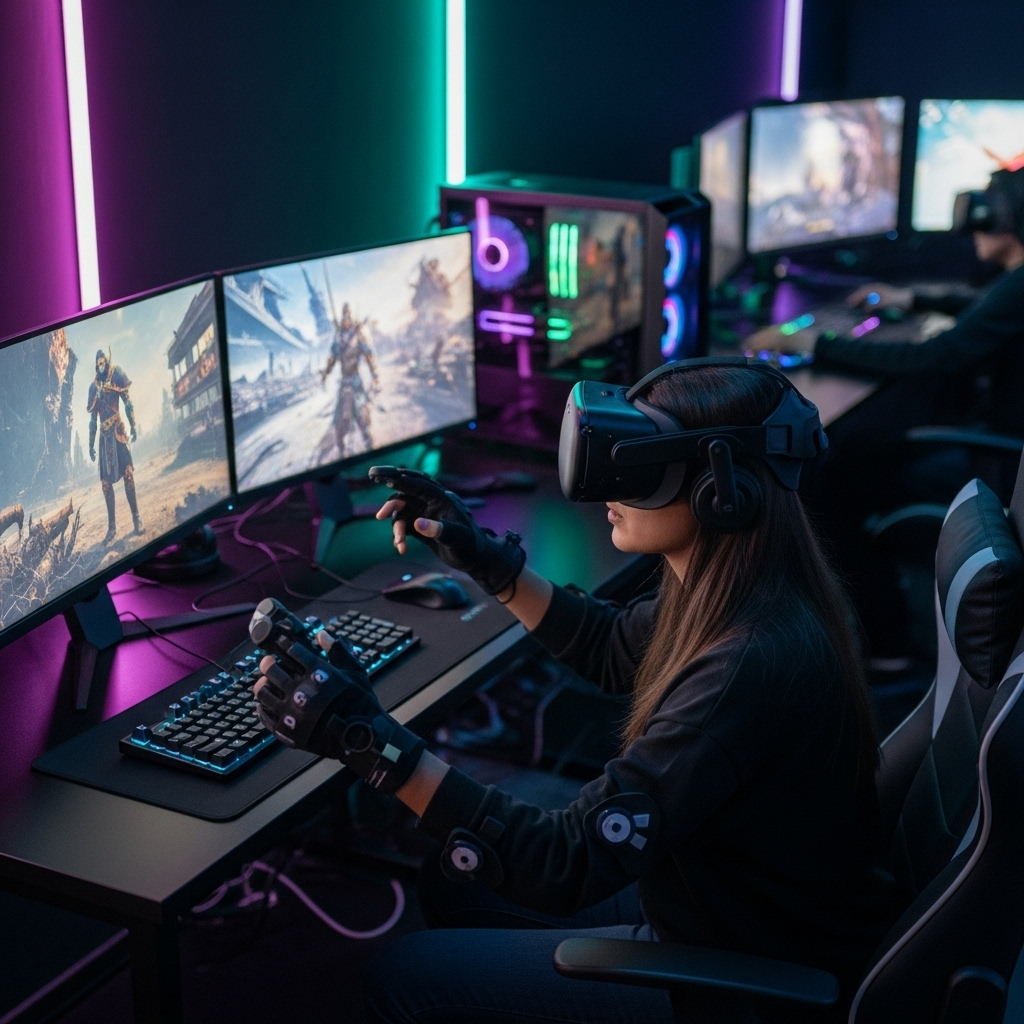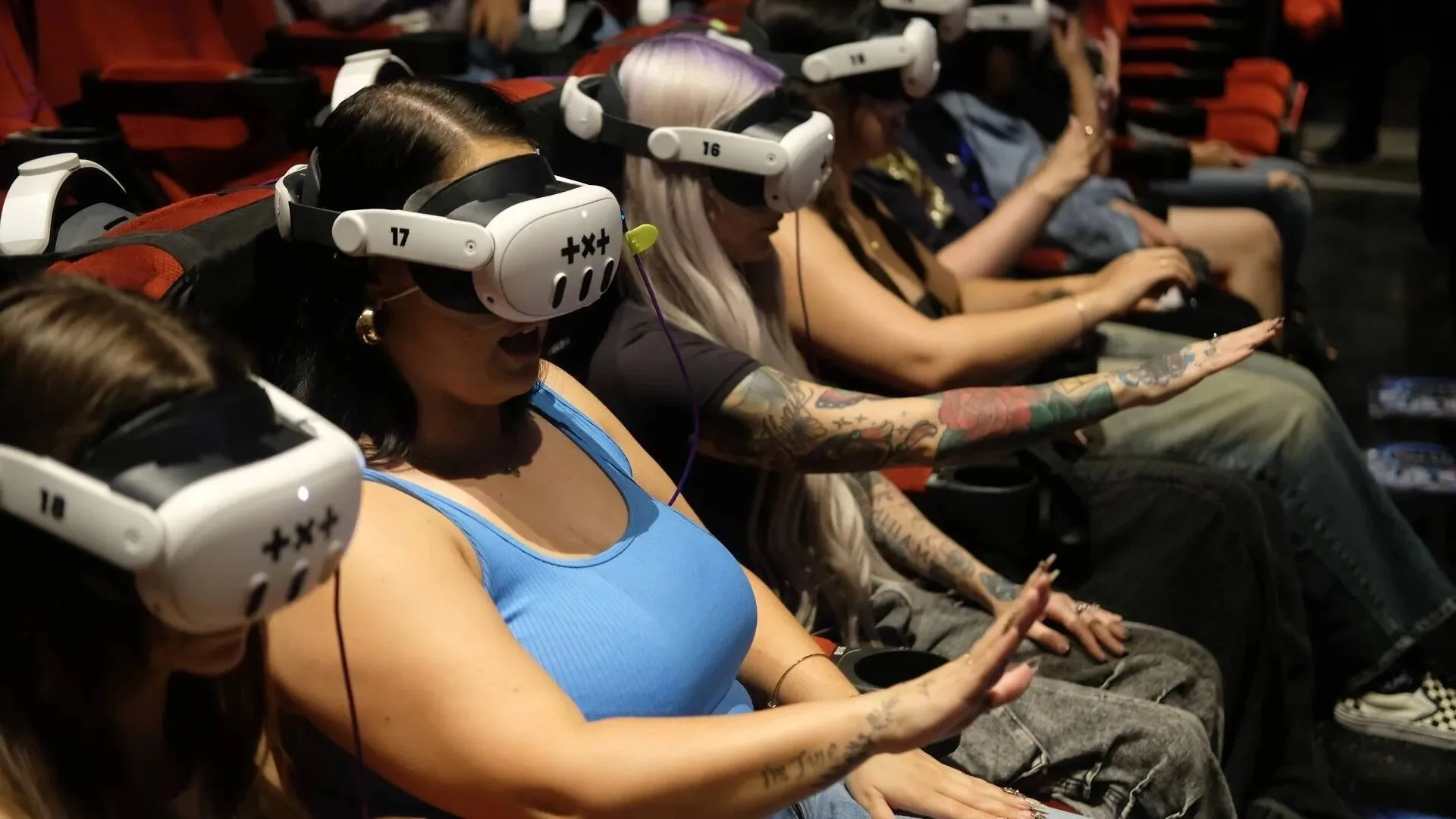In Part II, this part of the study moves from industry context to empirical analysis, translating strategic questions into evidence-based insights drawn from primary research. While Part I established the historical and market foundations of Games as a Service (GaaS) and transmedia adaptation and framed the challenges of player retention, monetization, and franchise longevity, Part II examines how these dynamics operate in practice. Using findings from a 1,159-response U.S. consumer survey, nine industry interviews with developers, influencers, and experiential professionals, as well as supporting secondary research, this section analyzes player behavior perceptions and expectations. Part II identifies the mechanisms that drive sustained engagement and trust in live service ecosystems, evaluates the effectiveness of current GaaS and transmedia strategies, and surfaces actionable insights that inform the strategic recommendations presented in the final chapter.
How Games as a Service (GaaS) and Transmedia Strategies Sustain Video Game Franchises, Part I
This study provides a foundational analysis of how live-service game models and transmedia strategies are reshaping the contemporary video game industry, with a particular focus on Games as a Service (GaaS), player engagement, and franchise longevity. As gaming continues to outpace film and television as the world’s most lucrative entertainment sector, publishers face growing pressure to sustain player communities, balance monetization with satisfaction, and extend intellectual property beyond the game itself. Part 1 examines the historical evolution of GaaS and game adaptations, situating SEGA’s legacy within today’s competitive landscape. Drawing on existing literature, industry reports, and market context, this section frames the central research questions and methodological approach that guide the study. By establishing the strategic challenges and opportunities facing live-service games and transmedia franchises, Part 1 lays the conceptual groundwork for the data-driven analysis and recommendations presented in Part 2.
Behind the LED Wall: Technology, Labor, and Economics in Virtual Production
This article explores the rise of virtual production (VP) and its impact on contemporary filmmaking through the use of large-scale LED volumes that merge physical sets with real-time digital environments. Using high-profile productions such as The Mandalorian and 1899 as case studies, it examines how VP reshapes creative workflows across departments, redistributes labor rather than eliminating it, and demands new hybrid skill sets from designers, location managers, and technicians. The piece also addresses the role of labor unions and training programs in adapting to emerging technologies, alongside the economic challenges of scalability, access, and high upfront costs. Ultimately, the article positions virtual production as a transformative - yet uneven - evolution in the entertainment industry, emphasizing the need for equitable training and infrastructure as VP becomes a lasting mode of production.
Part I - Beyond the Screen: The Role of AI in Evolving Game Ecosystems and Player Dynamics
This study provides a comprehensive analysis for Scopely to enhance its position as a leader in interactive and mobile gaming, focusing on AI integration in live operations, in-game commerce, and player analytics. The research reveals the urgent need for gaming companies to navigate accelerated AI adoption and evolving player expectations for personalized experiences. The goal is to identify the most impactful AI applications over the next three years and strategies that maximize engagement and monetization while maintaining player trust. Significant to this goal is balancing innovation with ethical considerations, including data privacy and transparency, while recognizing AI's potential to enhance storytelling and create immersive experiences. Employing a mixed-methods approach with industry interviews, a survey of over 1,000 U.S. gamers, and secondary research, Part I establishes the foundation for understanding AI's transformative impact - setting the stage for Part II's empirical findings and strategic recommendations.
The Use of Immersive Technology in Live Music: Vocaloid, Digital Concerts and XR Implementation
As immersive technologies redefine the live concert experience, artists and virtual idols alike are transforming how audiences engage with music. From Hatsune Miku’s “holographic” performances powered by projection and LED technologies to VR concerts by creators like BlackGryph0n and Gorillaz, extended reality (XR) is blurring the lines between physical and digital performance. This article explores the evolution of Vocaloid software, the artistry behind digital concerts, and the growing influence of augmented and virtual reality in live music. As AR and VR become more accessible, musicians and fans alike are discovering new ways to connect—reshaping what it means to perform, attend, and experience music in the digital age.
Extending Reach with Extended Reality: Live Theatre Performance and XR
This article examines how extended reality (XR) technologies are expanding theatre’s reach beyond the physical venue. Building on proshots’ successes and shortcomings, it maps liveness through four components—temporality, exclusivity, spatiality, and interaction—and tests them across emerging formats: immersive dome screenings (Cosm), phone-based AR experiments (All Kinds of Limbo, The Tempest), and avatar-led VR productions (Tender Claws, Adventure Lab). XR’s promise is real—richer presence, audience participation, and radical portability—but so are the hurdles of motion capture quality, cost, technical literacy, and scale. Rather than replacing stagecraft, XR functions as a flexible toolkit that opens new creative and accessible pathways for live performance.
Remixing the Music Industry: Strategies for 21st Century Record Labels, PART II
This study provides a comprehensive strategy for Shaboom Records to enhance its status as an independent music label in a highly competitive market, focusing on three key areas: revenue growth, digital service provider (DSP) strategies, and fan engagement. The supportive research reveals the need for companies to effectively navigate changes in the music industry, such as globalization and the rise of streaming. The goal of this research is to identify the most effective revenue streams for U.S. independent labels expanding into emerging global markets and the digital engagement strategies that yield the highest conversion rates and retention metrics for Gen Z and Gen Alpha listeners. Significant to this goal is the recognition that DSP optimization is largely based on securing relationships with playlist curators. Furthermore, social media has democratized the music industry, giving artists control over their narrative and the ability to connect with fans.
Remixing the Music Industry: Strategies for 21st Century Record Labels, PART I
This study provides a comprehensive strategy for Shaboom Records to enhance its status as an independent music label in a highly competitive market, focusing on three key areas: revenue growth, digital service provider (DSP) strategies, and fan engagement. The supportive research reveals the need for companies to effectively navigate changes in the music industry, such as globalization and the rise of streaming. The goal of this research is to identify the most effective revenue streams for U.S. independent labels expanding into emerging global markets and the digital engagement strategies that yield the highest conversion rates and retention metrics for Gen Z and Gen Alpha listeners. Significant to this goal is the recognition that DSP optimization is largely based on securing relationships with playlist curators. Furthermore, social media has democratized the music industry, giving artists control over their narrative and the ability to connect with fans.
The Politics of Portrayal: Motherhood Narratives on Television During Policy Transformation
Between 2017 and 2024, portrayals of motherhood on American television evolved alongside seismic shifts in reproductive rights policy. As streaming platforms expanded creative freedom, shows depicted increasingly diverse maternal experiences—grappling with infertility, childcare, abortion, and the pressures of “good motherhood.” At the same time, landmark legal changes, including the 2022 Dobbs v. Jackson decision, reshaped the national conversation about reproductive agency. This article explores how television both reflected and anticipated these political transformations, revealing the cultural narratives that influence—and are influenced by—the legal realities of parenting in America.
Should The Music Industry Go Virtual? A Case for Investing in VR Concerts
Since the pandemic, the VR concert industry has slowly become more mainstream as worldwide superstars like Megan Thee Stallion, Sabrina Carpenter and TOMORROW X TOGETHER adopt and utilize immersive realities. This article explores what music fans want, available VR concert formats, common technical limitations, and the experiential differences between in-person and VR concerts — questions labels and artists must consider before investing resources and funds into creating VR content.
AI-Driven Dubbing: A New Frontier for Voices in the Audiovisual Industry
What is the world if not a collection of stories? And, what is a globalized world without the capacity to share those stories across cultures, borders, and languages? Dubbing has long served as a bridge between screens and diverse audiences. However, as with every technological shift, we now find ourselves entering a new era: artificial intelligence. What challenges does this emerging paradigm present to the entertainment industry with regards to dubbing?
Disruption and Acquisition in the Entertainment Industry - March News
An eventful March unfolds in the arts, technology, and entertainment space. With the sale of TikTok still pending, well-known tech investors like Perplexity, Microsoft, and Oracle throw their hats in the ring. And, though ethical debates of AI-generated and AI-assisted work are ongoing, it is finding success in the auction houses and award ceremonies. Meanwhile, recent tech acquisitions may signal a shift in the music industry, and South by Southwest (SXSW) is making a strategic adjustment following this year’s festival. Read the highlights.
Part II: Live Service Games - Consumer Engagement and Retention
With this increased competition form live service gaming, consumer expectations continue to shift and grow. In Part II of this capstone research by Heinz College Master of Entertainment Industry Management students, the team has employed data-gathering methods such as interviews, a survey, and social listening to better understand factors influencing player engagement and retention.
Part I: Best Practices for Live Service Game Campaigns
Live service games, or LSGs, are one of the largest drivers in gaming revenue. However, as the market continues to saturate, game developers are finding it difficult to sustain players. In part one of this capstone study by Heinz College Master of Entertainment Management students, learn more about the background of these games and what has made them so successful.
Music, Movies, & More - February News
In the middle of awards season, major announcements in the media and entertainment industry defined February’s news. While Spotify prepares to ramp up its product offerings, new AI-powered tech is winning Grammys and helping make magic happen on the big screen. All this takes place in the shadow of some major policy announcements regarding copyright and AI.
Part II: Game IP: From Console to Screen
As the video game industry continues to grow, Hollywood studios are capitalizing on this intellectual property (IP) success through film and television adaptations. Students from Heinz College’s Master of Entertainment Industry Management program sought to better understand the current market for these adaptations. In Part II, see what film and video game executives consider to make an adaptation successful. Additionally, through a survey of gamers and non-gamers, learn what potential audiences prefer to see.
Part I: Playing the Game: The Convergence of Video
Due to the popularity and booming business of video games, Hollywood studios have capitalized on popular game titles by developing new content based off of their intellectual property (IP). This study sets out to better understand video game IP’s impact on film and television markets and what specific elements might impact an adaptation’s success.
Part II: Stakeholder Interests in the Future of AI and Entertainment
How will AI-generated content transform the entertainment industry? And what are the impacts on employment, content development, budgets, contracts, legislation, and privacy rights? Part II of this research by Heinz College Master of Entertainment Industry Management students provides an in-depth analysis of survey and interview data from entertainment lawyers, educators, and other industry professionals.
Part I: A New Era of AI in the Entertainment Industry
As exemplified by the Hollywood strikes of 2023, we find ourselves in a new era of Artificial Intelligence in film and television. While studios are looking to cut costs, performers seek job security, and consumers seek quality content. Through research conducted in collaboration with facial motion capture technology provider Faceware Technologies Inc., Master of Entertainment Industry Management students at Carnegie Mellon sought to gain insight on how AI-generated content will transform existing industries, including how this technology could affect employment in the entertainment industry, content development, budgets, contracts, legislation, and privacy rights.
Part One: The Globalization of Virtual Production in Film and Television - Past, Present and Future
Virtual production, defined in this project as the use of real-time technologies to combine traditional physical filmmaking with digital assets, has become a rapidly growing practice in the entertainment industry since LED screens were first used in The Mandalorian (2019) (Desowitz, 2020). LED stages have grown exponentially from three stages in 2019 to over 300 stages in 2022 (Giardina, 2022), expanding virtual production to now be a $1.8 billion market (Grand View, 2023). This project investigates the current landscape of LED stages and studios can capitalize on the growing market.






















